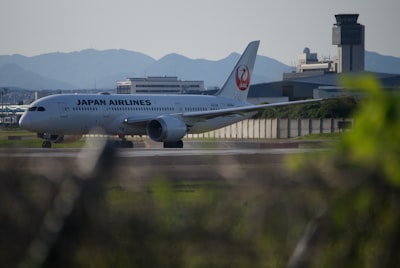Tensions Rise Amid China’s Charm Offensive at Osaka Expo 2025
The spotlight shone brightly on China during the recent National Day event at Expo 2025 in Osaka, but not for cultural reasons alone. While Chinese Vice Premier He Lifeng delivered messages of friendship and shared history with Japan, news of Chinese bomber flights in the East China Sea cast a shadow over the diplomatic showcase. This paradox—one moment of charm, the next of confrontation—raises pressing questions about the future of China-Japan relations, regional security dynamics, and whether diplomatic gestures can outweigh strategic military maneuvers.
Why Are China-Japan Relations So Complicated?
China and Japan share over 2,000 years of closely intertwined history. From cultural exchanges to economic dependency, these Asian powerhouses are neighbors who "cannot move away from each other," as He Lifeng noted. However, their modern relationship is complicated by unresolved historical tensions, territorial disputes in the East China Sea (notably over the Senkaku/Diaoyu Islands), and persistent military posturing.
- Economic Ties: Japan remains one of China's top trading partners, and both nations rely on stable bilateral relations for prosperity.
- Historical Legacy: Wartime memories and sensitive anniversaries often inflame nationalist sentiments on both sides.
- Security Concerns: Regular incursions and military exercises in contested waters undermine trust and provoke regional anxiety.
The Significance of PLAAF Bomber Flights During Diplomatic Events
While He Lifeng led cultural performances and spoke of friendship in Osaka, the Chinese People’s Liberation Army Air Force (PLAAF) staged bomber runs near Japanese airspace. This duality is not a coincidence but a recurring tactic in China’s foreign policy—presenting a friendly face while signaling strength through military might.
What Are These Bomber Flights About?
- Show of Strength: Demonstrates Beijing’s capacity and willingness to assert dominance in the East China Sea.
- Message to Japan: Despite calls for dialogue, China reminds Japan (and the world) that it will defend its territorial claims.
- Regional Deterrence: These maneuvers are also aimed at the broader Asia-Pacific community, including the US and its allies.
How Is Japan Responding?
Japan faces a diplomatic tightrope: welcoming cooperation from China on trade and climate, while escalating its defense preparedness. The Japanese government has:
- Stepped up air patrols and scrambled jets in response to Chinese aircraft.
- Strengthened security partnerships with the US, Australia, and India (the Quad).
- Held ongoing bilateral talks, hoping economic incentives may curb confrontational behavior.
What Does This Mean for Regional Stability?
The East China Sea remains one of Asia’s most sensitive flashpoints. Each military exercise or incursion brings the risk of miscalculation, raising worry among political analysts and global investors.
What Are the Emerging Issues to Watch?
- Military Escalation: Potential for accidental clashes between the two militaries.
- Economic Fallout: How ongoing tensions might affect trade, investment, and supply chains.
- Diplomatic Channels: The importance of regular, high-level dialogue to manage crises.
Conclusion: Can Diplomacy Outpace Military Maneuvers?
China’s simultaneous display of soft and hard power in Osaka exemplifies the contradictions at the heart of its relationship with Japan. While cultural outreach and dialogue remain vital, sustained military activity near disputed territories casts doubt on the true trajectory of regional peace. As geopolitics in East Asia grow ever more complex, it is crucial for stakeholders to stay informed, foster dialogue, and support multilateral efforts for conflict prevention.
FAQ: China-Japan Relations, Military Activity & Expo 2025
Q: Why did Chinese bombers fly near Japan during Expo 2025?
A: Analysts view it as a strategic message of strength, even as Chinese officials promote diplomacy at public events.
Q: How important are China-Japan economic ties?
A: Extremely important—both economies are highly integrated and rely on stability for mutual growth.
Q: Is the East China Sea dispute likely to escalate?
A: While outright conflict is unlikely, the risk of incidents from regular military activity persists.
For more on regional security and Asian diplomatic trends, see Council on Foreign Relations or Japan’s Ministry of Foreign Affairs.

Comments
No comments yet. Be the first to comment!